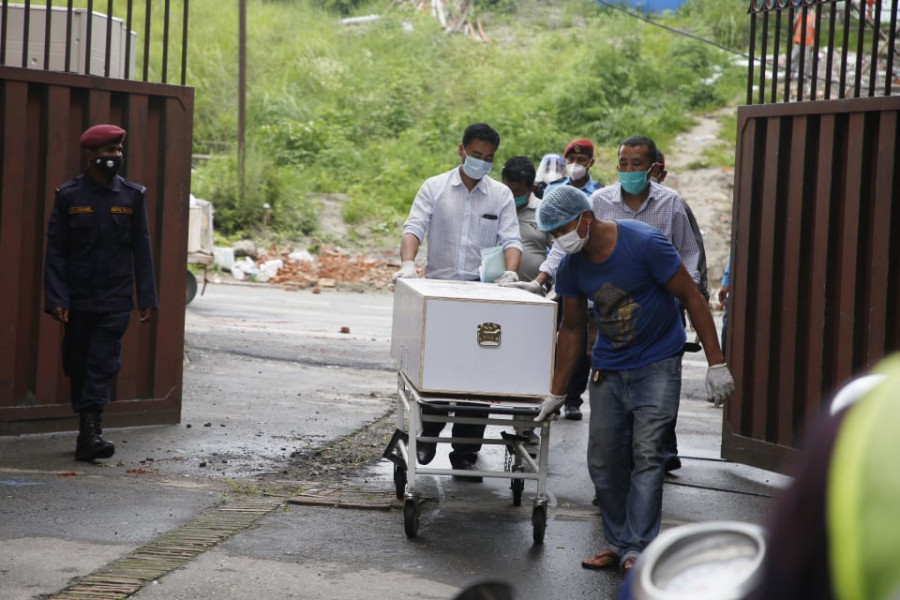National
Bodies of migrant workers stuck in Malaysia to be repatriated soon
Unable to ferry dead bodies, the government authorities had also started seeking consent from deceased workers’ families to perform their final rites abroad.
Chandan Kumar Mandal
Nearly three dozen bodies of Nepali migrant workers, who lost their lives while working abroad, are being repatriated from Malaysia.
After the repatriation of bodies from the Southeast Asian country was halted for some time, the Foreign Employment board had reached out to the Ministry of Labour, Employment, and Social Security seeking help to repatriate the bodies.
“Bodies of Nepali workers who died due to various reasons could not be brought home lately from Malaysia,” Shrestha, told the Post. “The number of bodies kept growing with the delay.”
Government data shows that on average, two Nepali workers die every day while working abroad. According to the board’s estimates, at least 31 bodies need to be brought home immediately from Malaysia and handed over to their kins in Nepal.
The delay has been attributed due to the absence of regular flights. “So far Nepal airlines have been using narrow-body aircraft to fly to Malaysia. These aircraft can hardly carry one or two bodies at one time. Foreign airliners do not ferry bodies,” said Shrestha. “Therefore, the Labour Ministry has requested Nepal Airlines to fly its wide-body aircraft to Kuala Lumpur to repatriate the bodies.”
Nepal Airlines conducts three flights to Kuala Lumpur every week—on Tuesdays, Thursdays, and Fridays.
According to Karishma Shrestha, spokesperson for Nepal Airlines, the national flag carrier will soon send a wide-body aircraft to fetch the bodies of Nepali workers.
“It will be possible to bring back the mortal remains of the deceased on the wide-body aircraft,” said Shrestha, the spokesperson. “However, the exact date for the flight has not been fixed.”
Bringing back remains of deceased migrant workers from various labour destination countries has been a challenge for the board due to coronavirus-related lockdowns and suspension of international flights for several months.
More than 300 bodies had remained stuck before the process had resumed with the operation of chartered flights for repatriating Nepali migrant workers.
Unable to ferry dead bodies, the government authorities had also started seeking consent from deceased workers’ families to perform their final rites abroad.
According to Shrestha, the executive director, while more than 600 bodies had remained stuck abroad since the pandemic began, 172 were cremated in countries where they had died.
Once these bodies land at the airport, the board provides a free hearse service for taking these bodies to the hometown of deceased workers.
“The employer concerned pays for repatriating the bodies that will be brought back next week. This is an international practice and the Nepali embassy oversees this issue,” said Shrestha. “If the employer can’t be made to bear the cost of transportation, the board coordinates with the Nepali missions and bears all the expenses.”




 10.12°C Kathmandu
10.12°C Kathmandu














